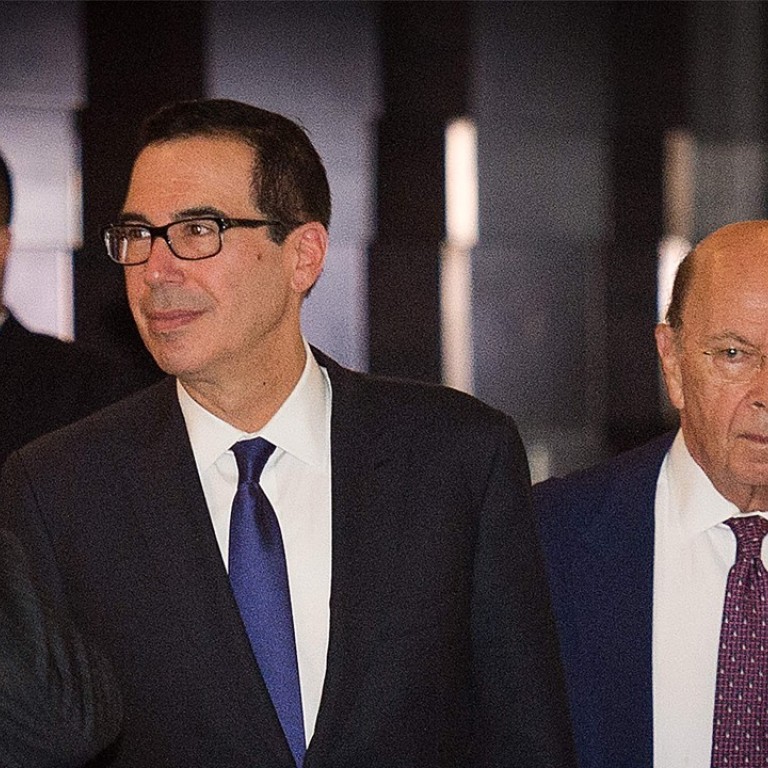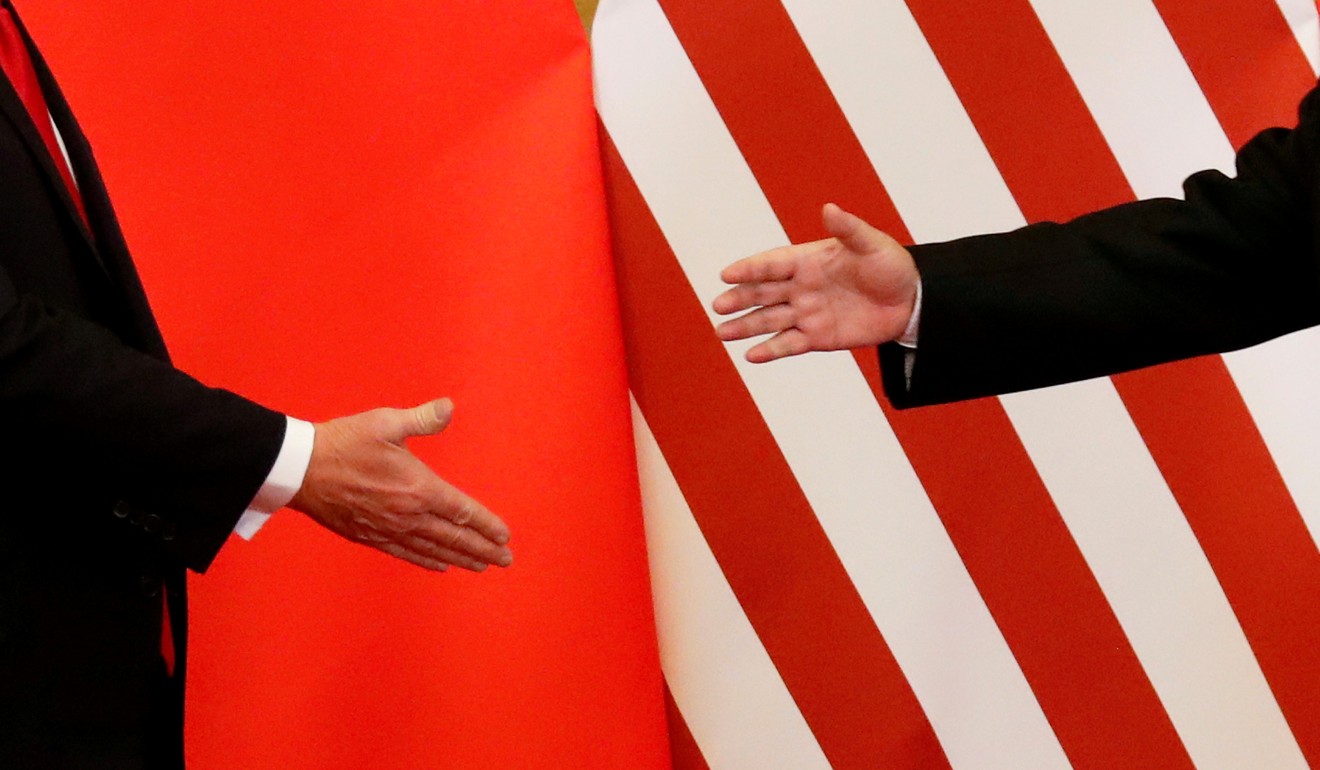
The next step? After US-China trade talks fail, Trump and Xi ‘may need to get involved’
To avoid more rounds of threatened sanctions, analysts suggest that the two nations’ leaders must resolve the toughest issues
China and the United States may be plunged into another round of trade sanction threats after high-level talks between trade representatives failed to secure any breakthroughs, and it will be up to negotiations between the two nations’ top leaders to resolve the deep rifts, Chinese analysts said.
Led by US Treasury Secretary Steven Mnuchin and Chinese Vice-Premier Liu He, the talks were held over less than 48 hours in Beijing and resulted in the two nations agreeing to have more dialogue, but no other tangible achievements.
The Chinese government only released a brief statement wrapping up the trade talks on Friday, calling the negotiations “candid and efficient” – diplomatic language meaning that they were heated and short. A statement from the White House also described the discussions as “frank”.
The White House characterised its negotiating position as generous because of US President Donald Trump’s respect for Chinese President Xi Jinping, and called for “immediate attention” to the trade imbalances, saying that Trump would resolve the issue “one way or the other”.
Documents prepared by the two governments ahead of the talks, reviewed by the South China Morning Post, reflected the deep divisions between the nations.
It could require involvement of higher leadership to decide the tough issues
The US demanded that China cut the trade deficit the US currently has by at least US$200 billion by the end of 2020. In addition, the US demanded that China halt state subsidies for industries under its “Made in China 2025” plan.
Also, it called on Beijing not to take retaliatory trade measures against Washington.
China called on the US to halt its section 301 investigation into its trade and industrial policies, and to lift restrictions on high-technology exports to China.
“The US is too demanding. The difference is too much. The problems cannot be solved by China over a short-run nor could they be solved merely by China without coordination from the US,” a trade policy adviser to the Chinese government said after the talks.
The US will finalise its punitive tariff list of US$50 billion worth of Chinese products later this month. Trump has threatened to impose tariffs on another US$100 billion in Chinese products as well.
The US Treasury Department is also planning to introduce proposals on May 21 to restrict Chinese investment in the US and US investment in China. Separate measures are in the legislative pipeline in Congress.
Trump says US plays ‘nice’ in Chinese trade talks due to ‘respect’ for Xi
“We may see a new round of tit-for-tat sanction threats unless both countries tacitly agreed to refrain from escalation,” the adviser, who spoke on condition of anonymity, said.
Chinese diplomatic and trade experts said the two nations would continue their dialogue, and that Xi and Trump might discuss trade issues when attending other international events.
“At least the window for dialogue is open,” the adviser said. “There are chances in multilateral events this year, such as G20 and Apec, that they could meet to settle the issues.”
Tu Xinquan, a trade professor at the University of International Business and Economics in Beijing, said the purpose of the talks was for both nations to state their respective positions clearly. He said both countries needed time to consider each other’s demands “one by one”.
“Discussions are needed in both countries to solve the problems, from easy to difficult ones. It could require involvement of higher leadership to decide the tough issues,” Tu said.
While China has shown a willingness to expand its imports of American goods and to lower restrictions on foreign investment in China, it wouldn’t accept a US demand to massively reduce the trade deficit.
China ‘is ready to fight US to the end’ if a trade war breaks out
Nor would it agree to halt subsidies to certain industries when the US refused to lift export restrictions on its hi-tech sector or recognise China as a market economy, Tu said.
Lu Xiang, an expert on US issues with the Chinese Academy of Social Sciences, called the US requests “unreasonable” and said the US had yet to demonstrate its true intentions.
“We may continue to face confusion for one to two months till the US shows its bottom line,” Lu said.

He said it would be up to Xi and Trump to tackle the tough issues.
“There should be a chance for both leaders to have frank talks,” he said.
Ruan Zongze, vice-director of the China Institute of International Studies, a think tank under the Ministry of Foreign Affairs, said that before the wrap-up of the talks the bilateral confrontation had gone beyond merely trade issues.
Best of times, worst of times for two Chinese smartphone makers
“The US ban on ZTE is a wake-up call for China. China should be more focused on developing core technology, otherwise we would further lose our voice [in technology]. We have the talent and have resources to do it,” he said.
He said China would stick to its gradual approach in opening markets, since “premature or excessive” openings would only bring risks to China’s economy and hurt the global market.

